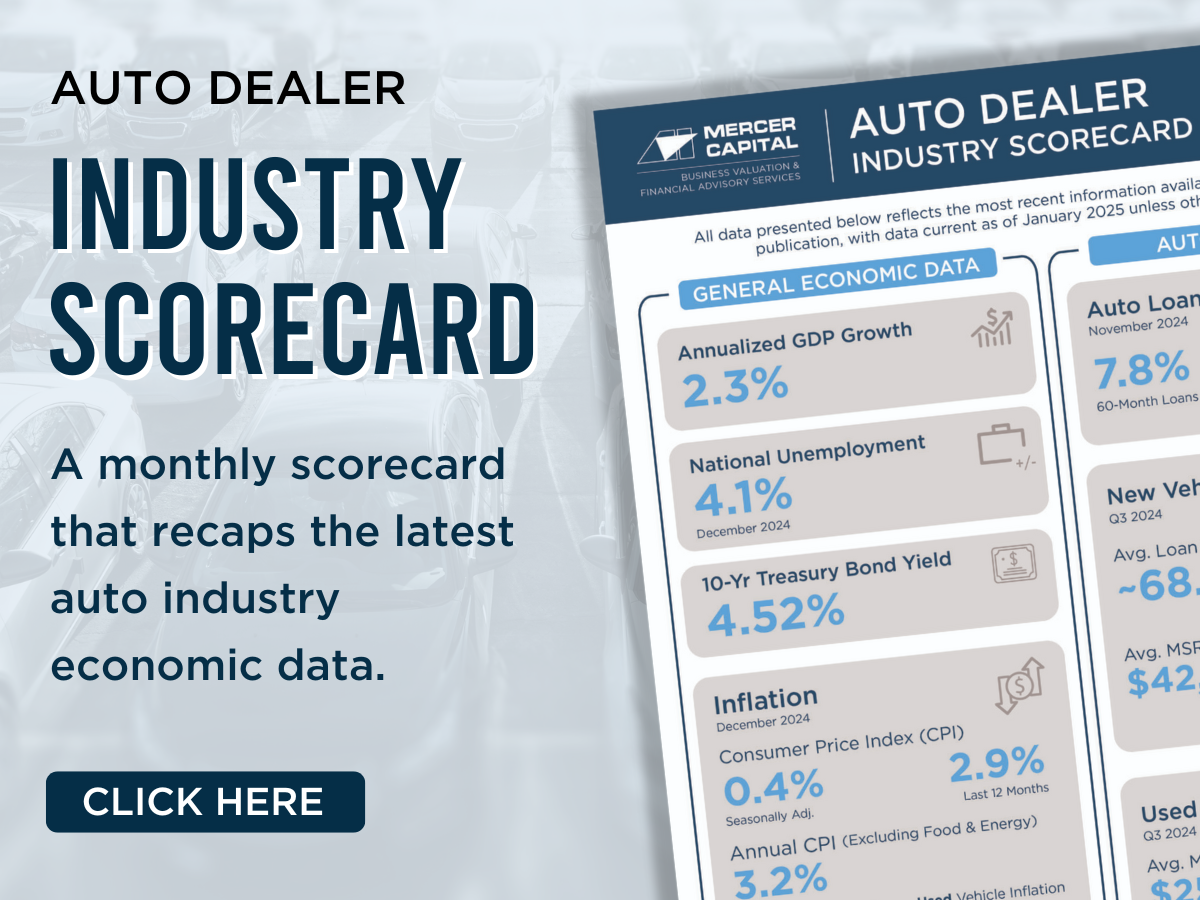A Deeper Dive into the Impact of COVID-19 on Auto Dealerships
Auto dealers are in a unique situation. While technically categorized as consumer “discretionary” items, many people rely on their cars to navigate their busy daily lives. With activity grinding to a halt amidst stay-at-home orders, cars are tipping more towards discretionary items (despite many dealerships being deemed essential businesses).
While more practical than other expensive purchases, like a designer handbag, automobiles become less of a priority when budgets are trimmed, particularly when people are staying at home. All told, this will likely lead consumers to delay their purchases of cars, particularly those who want to peruse their options by walking a lot and test driving various makes and models.
While other retail industries have fallen prey to the “Amazon effect,” auto dealers have avoided this fate because many consumers are not yet comfortable making such a significant investment without first getting behind the wheel. However, this means sales activity is even more adversely impacted by the current environment. Consumers with disposable income are more likely to spend it on other high-end items that require less personal inspection for style and feel before buying. As we’ll discuss, this is just one of the impacts the coronavirus is having on the auto industry.
How Long Will COVID-19 Last?
The key questions for auto dealers, and all other business owners, are how long this period will last and how COVID-19 will impact consumer spending on the other side.
While lack of wear and tear will delay many timelines, people will still need cars.
Buying a car is a significant investment that many consumers will simply delay as staying inside doesn’t require much car travel. In fact, some auto insurers will issue rebates as they expect claims to decline during this period.
While lack of wear and tear will delay many timelines, people will still need cars. Significant mileage or a wreck are the most obvious reasons someone would require a new car, but not all purchases are necessitated by the status of a prior vehicle. Getting married, having a child, or turning 16 are life milestones that tend to increase car sales, and these are not necessarily going to be halted by the pandemic. However, if the economic reverberations cause consumers to forego rather than simply delay their automobile purchase as budgets are slashed on the backside of this, a permanent loss in demand would likely prove extremely detrimental to auto dealers.
How Will the Auto Industry Respond to COVID-19?
While the proliferation of the Internet may not have fully infiltrated the auto dealer business model before the pandemic, the impact of the coronavirus on the way people shop has likely forced dealers to reconsider their digital strategy. Tech-savvy consumers were already using services like TrueCar and Kelley Blue Book to increase price transparency and lower gross margins. While dealers have dipped into e-commerce to varying degrees, dealers have largely been thrust into it now.
While dealers have dipped into e-commerce to varying degrees, dealers have largely been thrust into it now.
Aside from ramping up web presence, dealers must also consider how they will collectively respond to the reduced demand.
Contrast auto to another significantly impacted industry: restaurants. Restaurants can significantly decrease prices in order to keep customers coming through their doors. While they are sacrificing some profits by offering it cheaper, restaurants have plenty of turnover, and customers tend to return to their favorite places frequently. Auto dealers operate differently. Given the relatively long vehicle shelf life, dealers do not frequently experience near-term repeat customers (except for service and maintenance operations).
Dealers can get creative with their inventory to get cash infusions, though many will opt to offer increased incentives to boost sales. However, front-loading sales with incentives to make it through the tough times could have negative impacts on industry volumes as well as profits down the road. This pain will be particularly acute if some shoppers accelerate their purchases to take advantage of falling prices when they otherwise may have tried to delay a big expenditure by servicing their aging vehicle instead.
Incentive spending hit an all-time peak at $4,800 per vehicle in March, which supported the SAAR (a seasonally adjusted measure of Light-Weight Vehicle Sales) from dropping even further than it did. While annual sales have been above 17 million since 2014, this has included significant increases in incentives which come at the detriment of profitability. Gross profit is a much more relevant metric than revenue in the auto dealer industry, and revenues and volumes propped up by incentives that do not translate to improved gross profits will ultimately hurt dealership valuations as earnings deteriorate.
Government Response
Government response to this pandemic has come through both fiscal and monetary policy. Congress’ efforts on the fiscal side have been more visible, culminating with President Trump signing a $2.2 trillion economic package (the “CARES” Act) into law on March 27. Stimulus checks have started to roll in and the small business loan program, Paycheck Protection Program or “PPP”, has already reached its $349 billion limit. On Thursday, April 24th, Congress passed an additional $484 billion economic package with $320 billion replenishing the PPP, $60 billion in additional SBA disaster relief funds, and $100 billion to support hospitals and increased testing.
Government Response Impact on Dealerships
Many auto dealers, even those with significant top-line revenues, will qualify for small business grants and forgivable loans. For those on the fence about maintaining their workforce due to sharp decreases in demand for their services, these programs are structured to incentivize dealers to retain their staff.
The PPP is likely to boost morale for dealers able to retain their full staff during this time; this also saves future costs of having to train new staff when activity ramps back up. Still, tough decisions will have to be made, and auto dealers may be forced to cut costs they hadn’t considered during the long bull market that categorized the past decade.
The auto industry isn’t likely to receive the extensive aid being provided to airlines, but the small business loans won’t be the only impact the CARES Act has on dealerships. The $1,200 payments to consumers are unlikely to motivate people to go out and buy a car, but it could provide enough money to make car payments and get tune-ups or other necessary maintenance.
Conclusion
At this point, there are likely more questions than answers. The first order and second order effects of the virus are being measured in real time, and we likely won’t be able to fully understand its impacts until we have the benefit of hindsight. Government responses are likely to continue, though it is unclear the form of future actions.
What we do know is that many consumers are staying indoors, and odometers have slowed. Dealers must do what they can to maximize this downtime by increasing their digital presence and managing expenses and working capital. While dealers may need to sell at lower prices, they will have to balance near-term needs with long-term impacts. We have been impressed by the outpouring of support dealers have shown for their communities. We encourage everyone to continue checking in with family, friends, employees, customers, suppliers, and our local communities.
 Auto Dealer Valuation Insights
Auto Dealer Valuation Insights 








